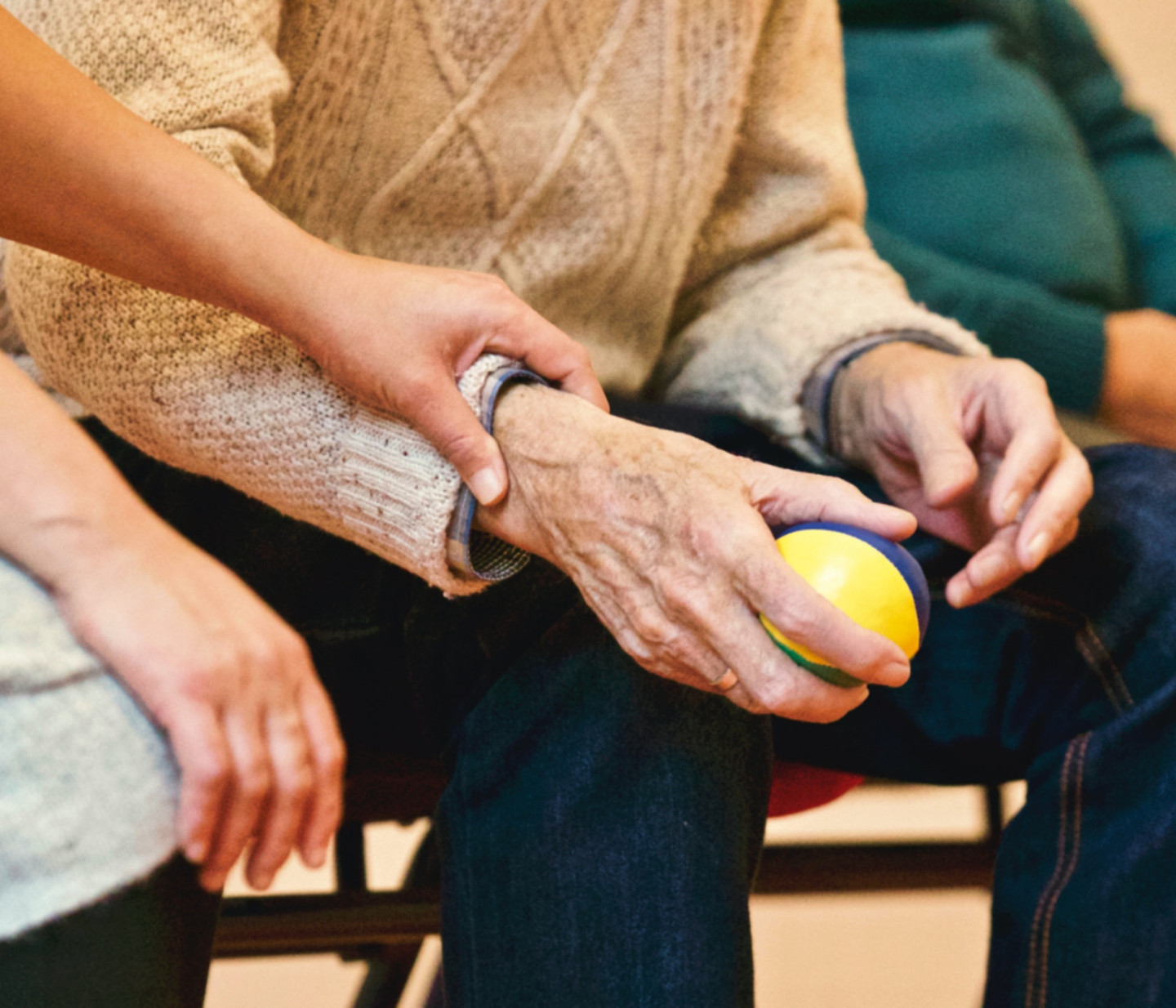
“Remembering the faces I love. That's my focus.”
Personalised dementia support that promotes independence, helping you stay in your own home, where memory and recall is strongest.
One of Australia’s leading dementia home care providers
Your identity is made from your stories, and the people you know and love. Drawing on Montessori techniques, our personalised, at-home dementia support will work with your strengths to retain memories of the stories, people and skills that can help you live independently for longer.

The Montessori Method
Using best practice methodologies and drawing from our own experience of caring for loved ones with dementia, Focus Care has developed an innovative and personalised approach to dementia care designed specifically for people living at home.
We focus on each client’s individual strengths, needs and potential. We support each of our clients living with dementia within their own home where associated memory and recall is at its strongest.

Our personal approach available to all Focus Care clients
With a focus on empowerment, this 100 year old practice creates positive outcomes by putting people at the centre of their own care.
Home is where the memories are. We’ll assess your home and suggest small changes that can make a big difference to everyday life.
Think of us as an extra pair of hands to help out, creating more quality time with those you love.
Whether shared language and culture, or a common interest, we carefully match carers to help form stronger connections.
We schedule visits to suit your needs and routine, helping create a familiar structure to your week.
We partner with physiotherapists and allied health professionals to offer the support you need to stay active.
A program designed to achieve the best outcomes for people living at home with dementia
Outcomes for clients include reduced agitation and anxiety, slower cognitive decline, remaining independent at home for longer and improvements in physical function.
Here are the 6 steps of the Montessori in Focus program:
We’ll get to know you as an individual, to help us structure an approach around your needs.
We’ll work with you and your family to shape a wellbeing plan based around physical, cognitive and social needs.
We’ll help you make small changes to your home to help support your independence.
We’ll match you to support workers who share your interests, and ensure they’re trained in your unique needs.
We’ll regularly review your services to ensure the care you require reflects your needs as they change over time.
Whether you’re the parent, or the child, having dementia in the family takes some adjusting. Our resources can help.
What our clients are saying
Have a question about Dementia?
Dementia is something we’re all aware of, but without personal experience, it can be hard to understand. We’ve answered a few FAQs below, but please reach out if there’s anything else we can help with.
Not yet. But with the right support, the condition can be managed. At Focus Care, we use the Montessori approach to manage dementia, helping people stay independent for longer.
You may have heard of the Montessori approach to education and childcare, but it has great results when applied to aged care too.
Based on the philosophy of a famous Italian doctor named Dr Maria Montessori, the Montessori Method has been a respected practice for over 100 years. When applied to dementia care, the person-centred approach, with its focus on empowerment, promotes independence wherever possible. How? By working with people’s strengths, in order to create opportunities, give older people choices and promote meaningful engagement.
Dementia care is covered in the government’s Home Care Packages. In fact, the government also offers a dementia and cognition supplement for home care. The supplement is available to people with a Home Care Package who have moderate to severe cognitive impairment.
Government funds from your Home Care Package and your dementia supplement can be put towards our Montessori for Dementia program and any of our home care services.
Read our page on Home Care Packages, to understand the four levels of home care packages that are available.
As you can imagine, the science and research around dementia changes all the time. We practice the Montessori Method – an innovative form of dementia care that focuses on maintaining a connection to the familiar, to help people maintain memory for longer. And that works best in your own home.
A familiar environment is key to effective dementia support. Not only does it support existing memories and routines, but it makes it easier for support workers to identify problem areas, and find ways to manage them. We find care at home the most effective way to offer tailored support.
The earlier you seek support, the easier it can be to manage cognitive decline. If you’re familiar with the early signs of dementia, consider who would be the best person to raise the subject – choose someone the person showing signs of dementia trusts.
Plan specific, natural ways to begin the conversation. You can say generic things such as “I’ve been thinking about my care plans for when I’m older. Have you thought about yours?”. Alternatively, you could gently ask whether they’ve noticed the same changes in themselves that you have. It’s likely they’ll deny having trouble with their memory at first, but by being supportive, reassuring, and giving them time to reflect, you can help them start their journey to managing the condition. When they’re ready, seek a professional diagnosis from their doctor.
It can be challenging when a loved one can’t acknowledge they may have dementia. Whether it’s through denial, or a lack of understanding, always approach your concerns in a gentle and supportive manner. Keep a diary of events, so that you can back up what you’re saying with examples. Make sure they see it as you showing concern, and don’t give the impression you’re spying on them.
Encourage your loved one to see a doctor. You can do this by appealing to their compassion. Say something like “it could get us some support that might help me understand some changes I’m seeing…”. If this fails, you can consider speaking to their doctor yourself.
It’s important to remember it’s still the same person. So try and stay true to how you’ve always been together. That said, there are some things you can do to help yourself be better understood.
When talking to someone with dementia:
Speak clearly and slowly
Give them time to reply, so there’s no pressure
Make eye contact
Try not to correct them too much
If something seems out of context, ask gentle questions
If you need an answer, give simple options for them to choose from
Never draw attention to their mistakes
Rephrase questions and reassure when they’re confused
Let them speak for themselves wherever possible
Be careful not to patronise
See our Glossary of Terms to clarify confusing or hard-to-understand terms.
Find our services in the following regions: Sydney, Central Coast, Melbourne, Newcastle, Brisbane, Sunshine Coast and Gold Coast.
Even if we're not in your area yet, feel free to get in touch.
Common myths about dementia
Check if we offer services in your area


Get in touch with our friendly team today to discuss your dementia care needs.
How it works
We’ll visit your home to get to know you, your goals and your specific needs
We'll work with you to design your services
You'll be matched with a support worker, and your journey will begin